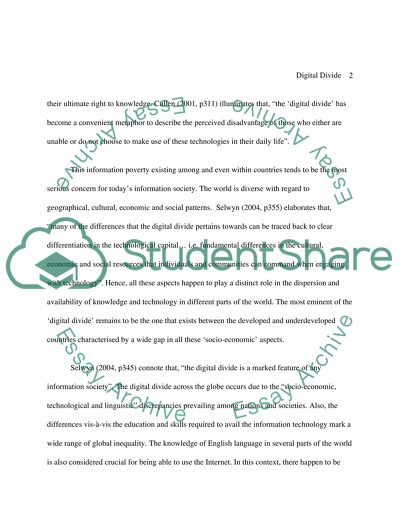Cite this document
(Digital Divide Essay Example | Topics and Well Written Essays - 1750 words, n.d.)
Digital Divide Essay Example | Topics and Well Written Essays - 1750 words. https://studentshare.org/information-technology/1503006-digital-divide
Digital Divide Essay Example | Topics and Well Written Essays - 1750 words. https://studentshare.org/information-technology/1503006-digital-divide
(Digital Divide Essay Example | Topics and Well Written Essays - 1750 Words)
Digital Divide Essay Example | Topics and Well Written Essays - 1750 Words. https://studentshare.org/information-technology/1503006-digital-divide.
Digital Divide Essay Example | Topics and Well Written Essays - 1750 Words. https://studentshare.org/information-technology/1503006-digital-divide.
“Digital Divide Essay Example | Topics and Well Written Essays - 1750 Words”. https://studentshare.org/information-technology/1503006-digital-divide.


